- Online reputation management (ORM) helps brands actively shape their online presence, ensuring trust and credibility through positive customer interactions and reviews.
- With over 80% of consumers reading reviews before buying, a strong online reputation directly impacts customer decisions and buying behaviors.
- Positive reviews and mentions not only enhance brand perception but also boost SEO, leading to better visibility in search engine results.
- Professional ORM agencies, like Andava Digital, offer around-the-clock monitoring, crisis management, and reputation-enhancing content creation, securing brand integrity and growth.
Your brand’s reputation is out in the open, for all to see. From reviews and social media comments to search results, potential customers are talking about your business. What they find online can make all the difference between gaining a loyal customer and losing one.
And that’s where online reputation management (ORM) comes in. It puts you in the driving seat and helps you create the way others perceive your brand. ORM isn’t all about damage control; rather, it builds up a positive image engendering trust, and keeps your business strong in the competitive market.
What is Online Reputation Management (ORM)?
Online reputation management is an active effort to influence, oversee, and control how a brand, business, or identity appears online. ORM takes slightly different forms whether it’s for an individual or a business.
In the case of an individual, this will involve personal branding to establish an online persona that is trustworthy and relatable. For businesses, it’s about corporate reputation. It involves creating perceptions in the mind of the public for issues like credibility, customer satisfaction, and trust.
How is Brand Reputation Management Different?
Brand reputation management (BRM) is all about how your brand is perceived across every interaction, from product quality to customer service. It endeavors to make an endearing impression over time. Now, online reputation management zooms in on the digital side of things. It zeros in on what people are saying about you right this very minute in social media comments and online reviews.
Brand Reputation Management vs. Brand Safety
Brand safety works like a security system for your reputation. While brand reputation management focuses on building the positive side of your brand, brand safety protects it from digital risks like digital scams, logo misuse, and misleading advertisements. A key part of brand safety is digital asset management, ensuring your brand’s visuals and content are stored, accessible, and used consistently across platforms.

Why is ORM Important?
Online reputation management is not a nice-to-have, but a must-have for any brand aspiring to be successful. ORM assists in building trust and credibility, influences customer decisions, and shapes how your brand is perceived.
Trust and Credibility in Business Success
Any business requires trust as the backbone of its success. Increasingly, customers make decisions to transact business with any brand based on online reviews. A positive online reputation increases credibility and helps build loyalty with customers.
Influence on Customer Decisions and Buying Behavior
Online reputation directly affects customer decisions. Research shows that almost 80% of consumers read reviews before making a purchase. If potential buyers find consistent positive feedback about your brand across different channels, they will be inclined to choose you over your competition.
Impact on Brand Perception and Public Image
Every touchpoint with your brand is a builder of your public image. Responding to customer feedback, sharing good news, and being timely in responding to negativity build your online presence. By doing so, not only will you be enhancing how your brand is perceived, but you’ll also build a reputation as a credible option in a cluttered marketplace.
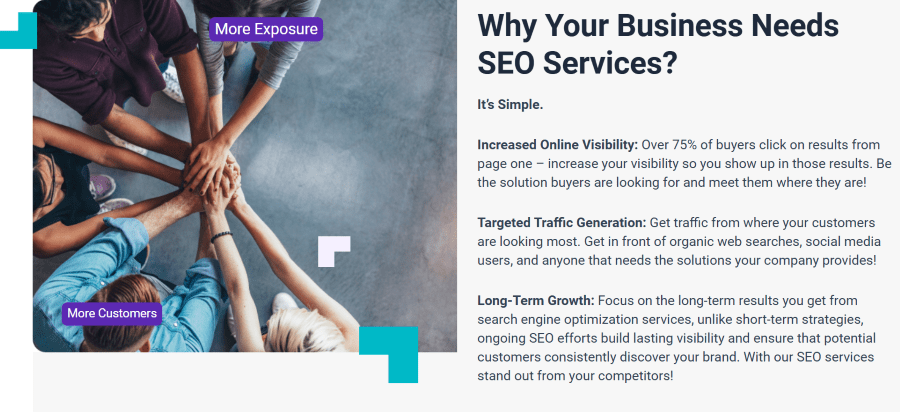
The Relationship Between Reputation Management, SEO & Rankings
A strong online reputation enhances your visibility in the search results, and positive customer experiences increase your SEO efforts. When customers leave favorable reviews, search engines will take that seriously, often resulting in a higher ranking for your website. This enhances local search visibility as well as footfall and sales.
To make the most of this relationship, it’s essential to incorporate relevant keywords into your content. These keywords signal to search engines that your site is relevant to user queries, helping you rank higher and also influencing how your brand is perceived.
Social Media Marketing and ORM
Social media marketing is a part of your online reputation management strategy. For example, a local fitness studio that hosts a community workout event can use social media platforms to engage potential members.
Sharing workout tips, success stories, and behind-the-scenes insights into the happenings at the studio creates an inviting environment. Sharing a member’s weight loss journey not only congratulates them on their achievement but also encourages others to become members.
However, negative feedback can accumulate in no time. One single comment about an instructor, if negative, can affect your brand image and positive content.
This is where ORM becomes essential. It enables the monitoring of all the social channels and addressing of all concerns swiftly, thus establishing that you really care about customer opinions. This is how social media marketing and ORM go hand in hand to create your brand’s story and manage online reputation.
How is ORM Different from PR?
Online reputation management and public relations are two practices that essentially help shape brand perception, only in a different way. More specifically, ORM involves active management of your presence online by responding to customer reviews.
Conversely, PR is more generic and usually relates to strategic communication in developing relationships with both the media and the public. PR tries to build a positive general image through storytelling and communicating with the media.
How to Do Online Reputation Management (Yourself or Using a Service)
Managing online reputation on your own can be a valuable learning experience, helping you understand the fundamentals of brand image control. However, ORM is time-intensive, and as your business grows, handling it alone may become impractical. At that point, hiring a professional ORM service can bring expertise and efficiency, ensuring your brand’s reputation stays protected as demands increase.
If You Do It Yourself: Steps to Managing Your Online Reputation
By managing your online reputation yourself, you will be taking a much more hands-on approach toward the way your brand is perceived. While the process is not for the faint of heart, and it does require persistence, the steps outlined here will be sure to give you the knowledge to build and maintain a positive image as your brand evolves.
Monitor Your Brand’s Online Presence
First, listen to what people are saying about your brand. Google Alerts is a free tool by Google that lets you get email notifications every time new results for a keyword show up in the Google index. This will help you answer feedback on time and manage your online reputation. To set it up and use it effectively, take a look at this comprehensive Google Alerts setup guide.
Encourage and Manage Reviews
Build your online reputation through customer reviews. After transactions, send follow-up emails, thank customers, and request that they give your business a review. Make it easier; direct links to your review profiles are genuinely appreciated.
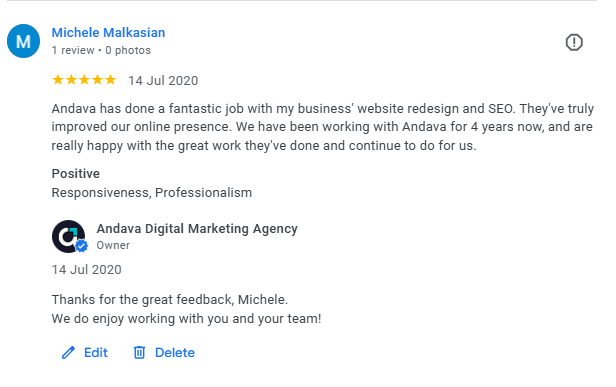
Control Your Search Engine Results
Build influence over your online image by creating high-quality content, focusing on your expertise and positive customer experiences. For example, you could write blog posts highlighting customer success stories or write guest posts on reputable sites to enhance your reputation and improve your visibility, effectively pushing down any negative search results in the process.
Engage on Social Media
Be active on the social media platforms where your audience is active. Share relevant content, respond to comments, and address concerns in a timely manner. Respond to all reviews, both good and bad, to show that you value customers’ inputs.
Establish a Content Strategy
Create a content strategy based on your brand values. Focus on creating great content that speaks to customer needs such as publishing informational articles. You are creating authority in your industry by consistently providing great content and establishing trust with your audience.
Develop a Crisis Management Plan
Devise a crisis management plan to deal with potential negative publicity. For example, when United Airlines faced backlash over a passenger removal incident, they quickly issued a public apology and detailed the steps they would take to prevent such occurrences in the future. This incident highlights the importance of transparent communication and swift action in maintaining trust during a crisis. Having a well-defined crisis management plan can help mitigate negative publicity and maintain your brand’s reputation.
Reputation Monitoring and Ongoing Management
Keep monitoring the perception of your brand through reputation monitoring tools and analytics. Adjust the strategies accordingly based on the feedback and keep evolving in order to keep a positive online presence.
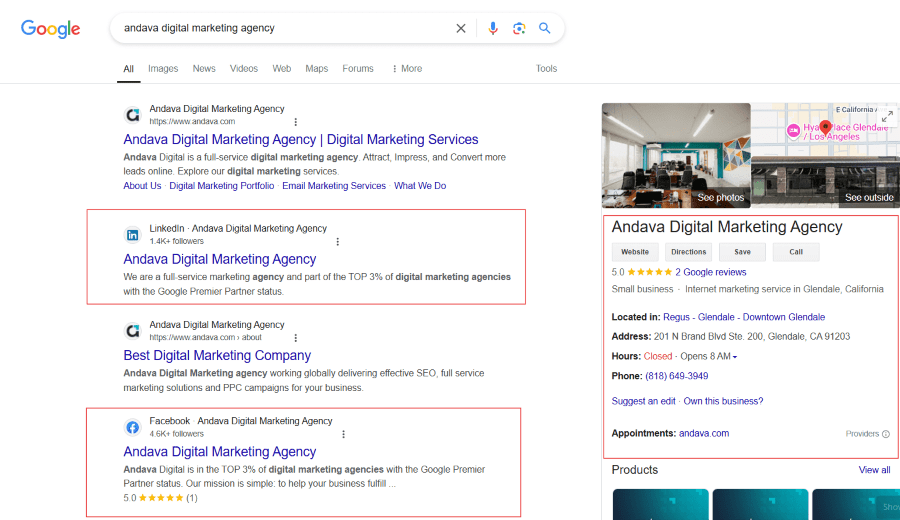
If You Do It Yourself: Key Tools
Free Monitoring Tools
- Google Alerts will allow you to receive an email every time your brand appears anywhere on the web. For a detailed guide on setting it up, visit Google’s support page.
- Social Mention aggregates conversations and sentiment across social media platforms, making it easy to see what people are saying about your brand. To learn more about Social Mention and how to utilize it, check out this comprehensive guide from Hootsuite.
These free tools will give you some really quick insights into what is going on with your public perception.
Paid Tools
For more advanced features, some of the paid options are Reputation.com, Brandwatch, and Yext.
- Both Reputation.com and BirdEye will offer reputation tracking, review management, and very comprehensive sentiment analytics.
- Brandwatch would be for real-time monitoring and in-depth social conversation analysis to know your audience better.
- Yext covers business consistency in directories.
Social Media Management Platforms
Hootsuite, Buffer, and Sprout Social make managing multiple social media accounts easier by allowing posting, engagement with followers, and tracking of mentions from within a single dashboard.
- Hootsuite has solid analytics.
- Buffer helps to better plan content.
- Sprout Social tracks your engagement.
You can find more tools and options, at Semrush, or Capterra, to find a tool that meets your needs.
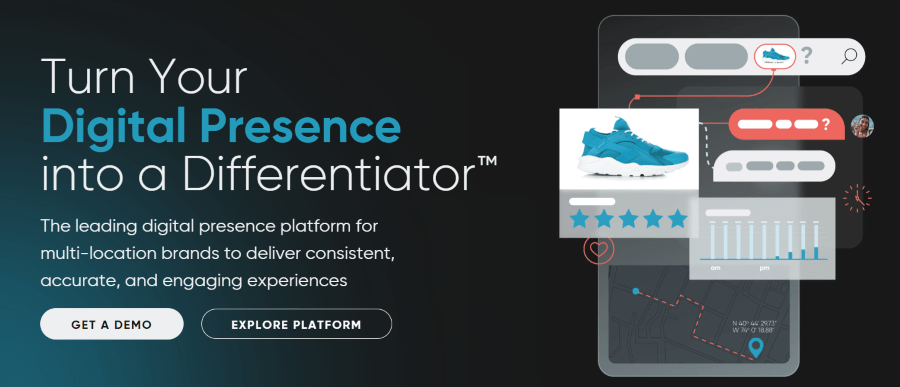
If You Hire a Professional Service: Outsourcing Your Online Reputation Management
Hiring an ORM agency will serve to enhance any company’s online image and improve overall performance in business. According to a study by Moz, brands with good online repute generally benefit from better search engine rankings. By outsourcing ORM to a specialist agency, businesses can be guaranteed that their online presence will be deeply analyzed and strategically managed, hence finally assuring better engagement and growth.
When to Consider Professional ORM Services
- Time Constraints: Effective ORM demands constant monitoring and timely intervention. If the fuss of managing in-house becomes bothersome, share some of it with professional services. They offer round-the-clock support, monitoring mentions and helping manage online reputation.
- Expertise and Scalability: ORM agencies have a speciality in certain verticals, such as SEO and social media analytics. They keep themselves updated about all the latest happenings in the industry and follow best practices to keep your brand visible and current. The service is scalable as the business grows by ramping up efforts to meet demand.
- Crisis Management: Whatever the crisis may be, from customer complaints to negative media coverage, responses have to be really timely. ORM services handle such situations professionally by utilizing pre-planned strategies that may minimize the damage and control your reputation.
Professional ORM Services
- Reputation.com: It’s a reputation management service based on monitoring brand mentions, managing reviews, and SEO optimization. It features state-of-the-art technology designed to help businesses maintain a strong online presence on search engines and credible review sites.
- WebiMax: What makes WebiMax very special is the fact that it designs its ORM with a tailor-made strategy hence making every business unique in its own way. Ranging from SEO optimization to content creation, WebiMax ensures that the business ranks well on search engines and maintains a good brand perception.
- Andava Digital’s ORM Services: As a leader in online reputation management, Andava provides customized solutions that go beyond typical ORM. With services including reputation management, digital asset management, and brand protection strategies, Andava Digital ensures that businesses not only manage their online image but also protect it. Andava Digital also supports brands in proactively building and securing their reputation on all digital channels.
Benefits of Hiring Professionals
- 24/7 Monitoring: Professional ORM services ensure constant vigilance over your brand’s online reputation. With 24/7 monitoring, they quickly detect and address issues, allowing you to respond to potential concerns anytime.
- Advanced Tools: ORM agencies have access to paid tools that offer advanced insights and wider monitoring capabilities than free ones. Receiving detailed reports and even AI-driven sentiment analysis, these organizations can then initiate more effective data-driven campaigns.
- Expert Content Creation: A professional ORM team excels at creating high-quality, positive-brand-image-sustaining content be it blogs, press releases, or social media posts. Their expertly crafted content not only increases your brand’s visibility but also credibility and customer trust.
- Crisis Response: In the face of a PR crisis, experienced ORM professionals can immediately act to reduce impact. With established crisis management plans, they contain reputational damage perfectly, safeguarding your brand and minimizing long-term consequences.
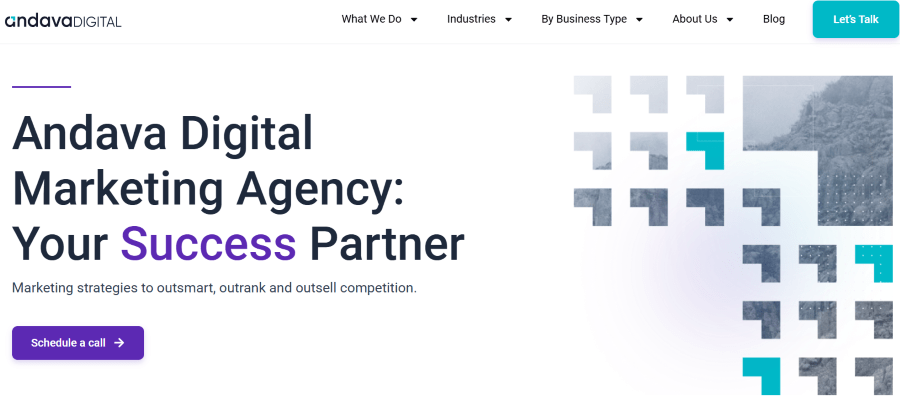
How to Create an ORM Plan
An ORM plan is a strategy for monitoring and improving your brand’s online presence. It involves active review management, dealing with negative feedback, and generating positive content to drive credibility and trust. The main activities involved in developing an ORM plan include setting specific reputation goals, monitoring mentions of the brand on all platforms, being responsive to any problems that arise, and sharing positive stories.
- Evaluate Your Online Reputation: Audit the online presence of your brand. Use Google Alerts for simple monitoring, or Brandwatch for more comprehensive analysis. Review customer feedback, online mentions, and search engine results to gauge how your brand is perceived at the moment.
- Define Your Goals: Clearly define what your objectives are for your ORM efforts. Would you want more positive reviews, better visibility in search results, or greater customer engagement? Be clear about what you want from your strategy so that you can shape the approach and make evaluation of success possible.
- Choose the ORM strategies that suit your goals: You may want to concentrate your work on either social media management, review building, or building informative and educational content through blogging and article publishing.
- Assign Roles: If you are working in a team, then assign clearly distinct roles to each and every activity. For instance, make one responsible for social media management, another for review monitoring, and another for SEO work.
- Review the Plan and Update It Periodically: Improvement of ORM is a continuous process. Use analytics and monitoring tools every month or so for an idea about how brand perception has changed. Refine the plan based on what works and what doesn’t to keep your ORM effective and in tune with your goals.
Common Issues in Online Reputation Management
The possible difficulties in managing an online reputation come from the fast-changing digital environment, misinformation, and the need for cautious transparency. Therefore, brands have to change strategies very frequently in order to overcome these issues while trying to protect their image and maintain customer trust.
Staying Ahead of the Ever-Changing Online Trends
Social media trends and algorithms change in the blink of an eye, and it is very easy for your brand message to be stale in that same blink of time. Keep current with industry news and refresh strategies frequently so that your audience remains engaging without fostering negative perceptions about your brand.
Minimizing False Information
It’s very easy for misinformation to get out and make a dent in your brand. Deal with rumors quickly by publishing a straightforward, fact-based statement across channels to take control of the story and minimize harm to brand reputation.
Balancing Transparency and Privacy
While customers demand transparency, it has to be handled with sensitivity because too much disclosure invites privacy issues. Strive to be candid about your values and practices, securing sensitive information about customers and internal data in such a way as not to lose their trust for privacy.
Build Your Brand Authority Online
Your online reputation is key to how customers perceive your brand and can be the deciding factor in choosing you over competitors. By implementing a proactive strategy, whether in-house or through expert guidance, you can build trust and enhance your brand’s lasting appeal. After all, a strong reputation grows with your business.
Take the next step in shaping your narrative. Don’t leave your brand’s story to chance. Contact Andava Digital today for a personalized consultation on our ORM strategies.